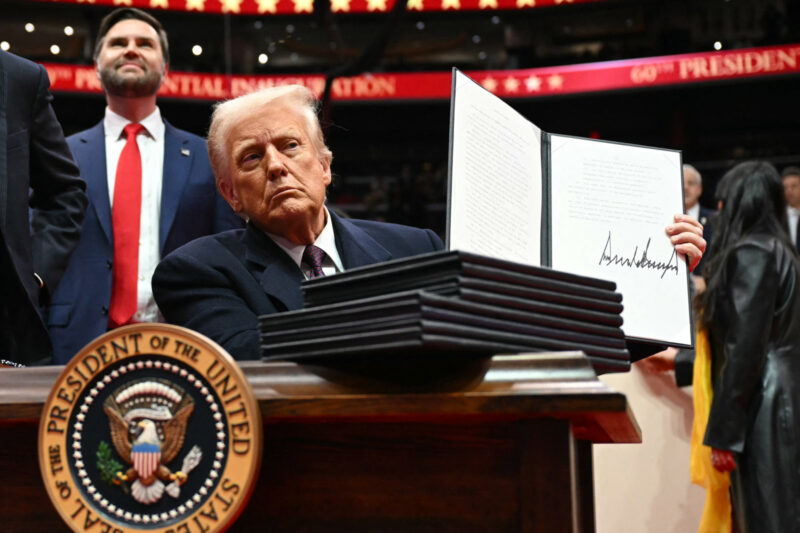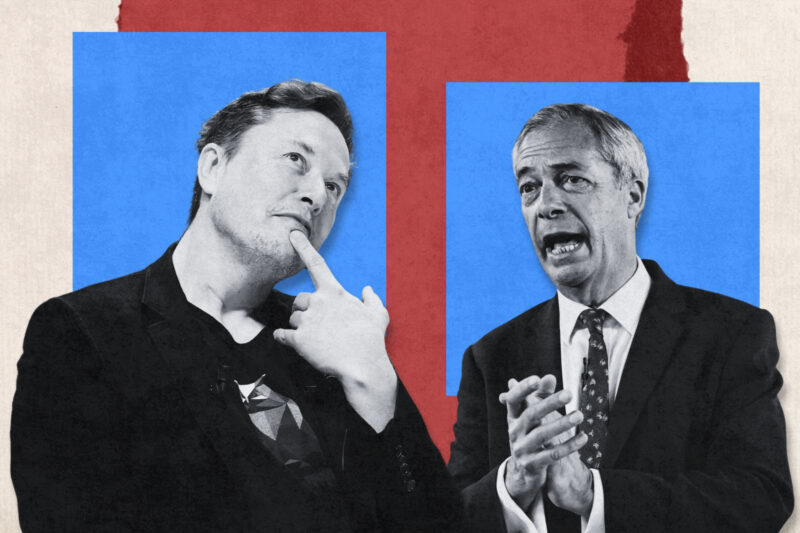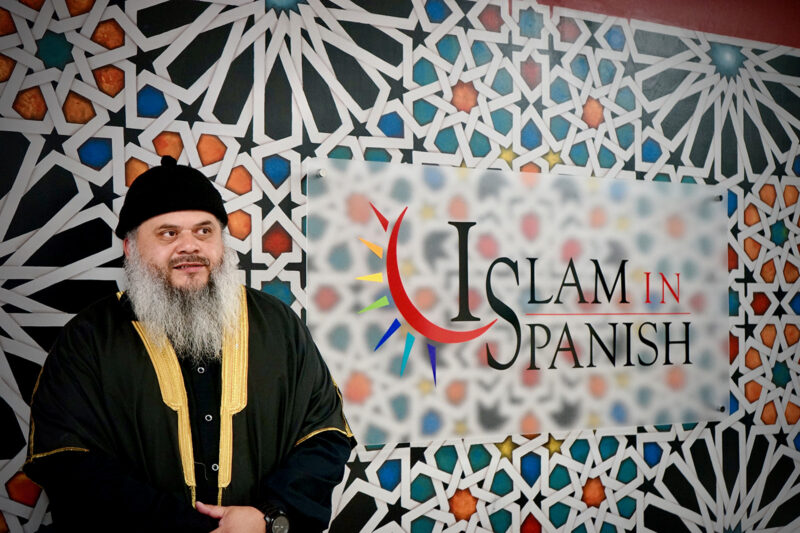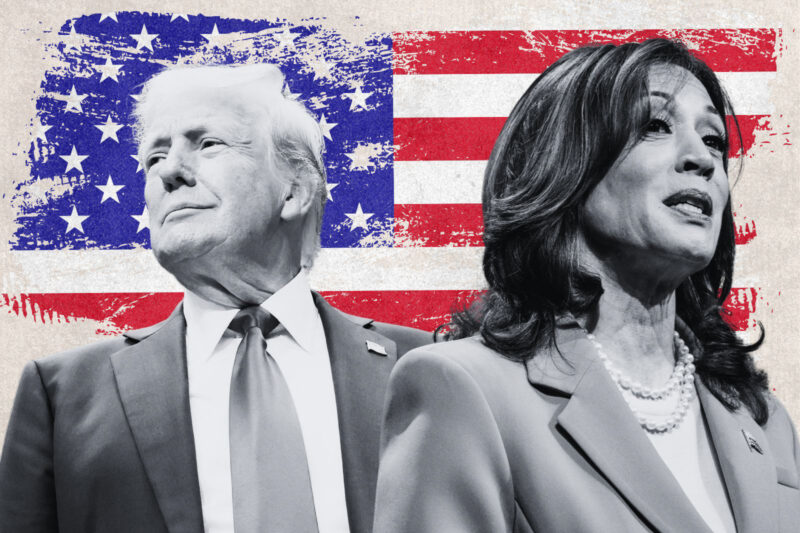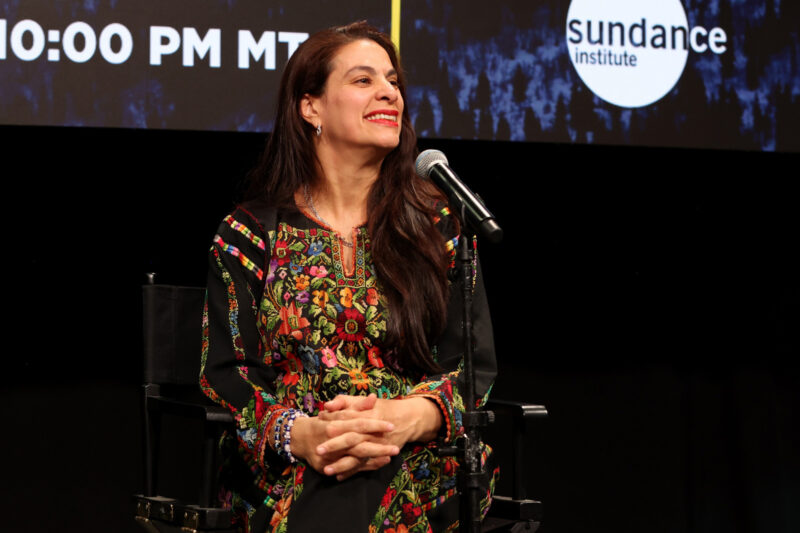Why isn’t America talking about Trump’s planned Muslim ban 2.0?
In 2017, the 45th president outraged the world by blocking immigration to the US from several Muslim-majority countries. Now he wants to impose even harsher sanctions
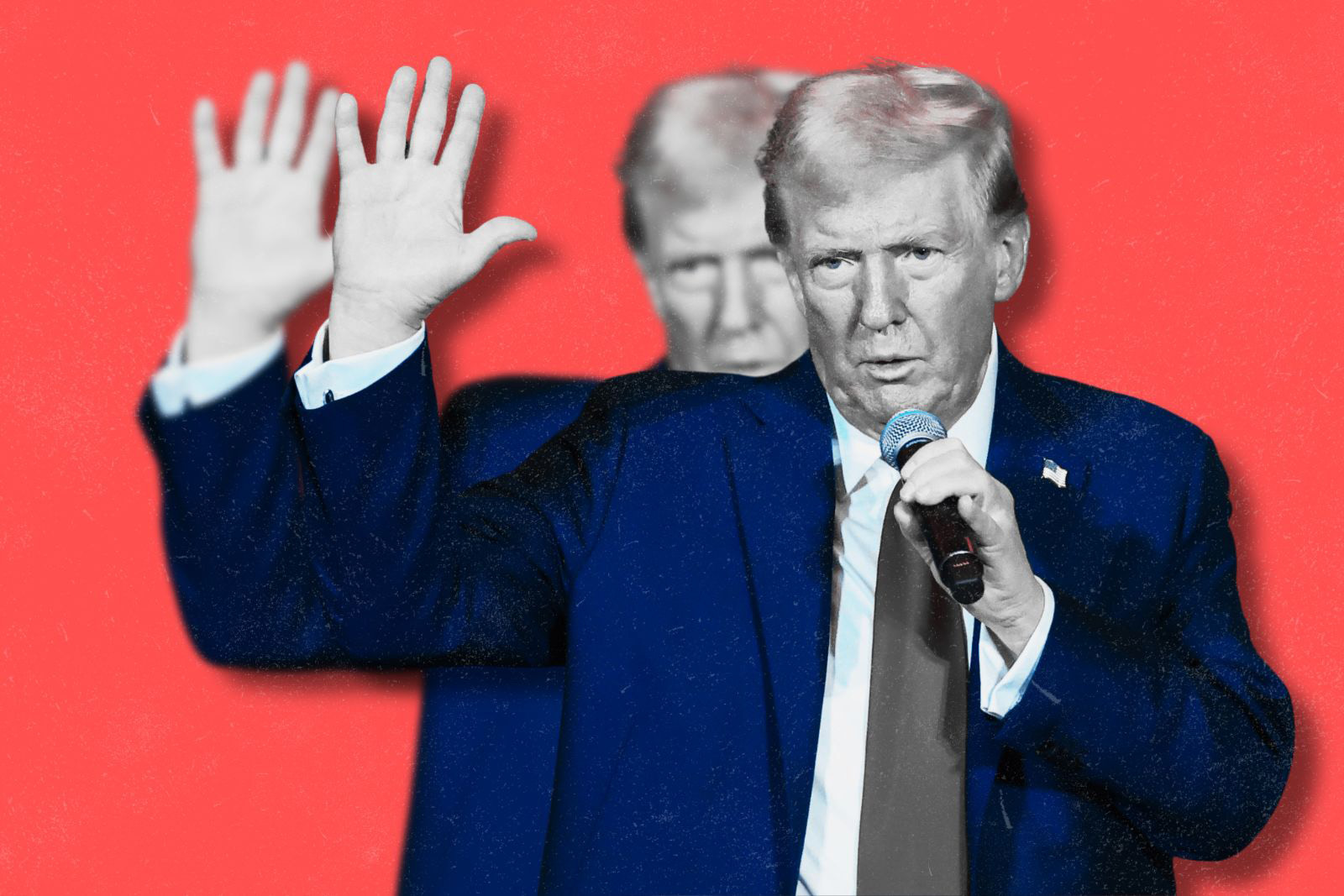
In 2017, Samira Asgari spent seven days trying to fly from Europe to the United States, where she was supposed to begin a postdoctoral fellowship at Harvard University.
Day after day, the Iranian-born computational biologist was turned away from departure gates owing to airlines’ fears of violating President Donald Trump’s newly declared “Muslim ban”. While Asgari was still based in Switzerland, Trump had imposed Executive Order 13769, which included a 90-day blanket travel restriction on citizens of seven Muslim-majority countries: Iran, Iraq, Libya, Somalia, Sudan, Syria and Yemen.
When she was barred from boarding a plane in Frankfurt, “confusion, frustration, and helplessness” set in, she recalled. A few days later, a SwissAir agent in Zurich showed her a letter from US Customs and Border Protection threatening to fine the carrier $50,000 if it allowed Asgari to travel.
On the afternoon of 3 February, after a district judge in Massachusetts issued a temporary restraining order to freeze Trump’s decree, Asgari finally made it to Boston’s Logan Airport. Dozens of camerapeople, reporters, lawyers, supporters and even Congressman Joseph Kennedy III showed up to greet her.
“I was overwhelmed by the amount of kindness and support that was shown at [the] arrival hall. I was not expecting it,” she told Hyphen.
Asgari became a case study of the far-reaching effects of the law on an estimated 60,000 families and workers who had waited months or years for travel permits — among them scholars at major US academic institutions.
Now an assistant professor at the Icahn School of Medicine at Mount Sinai in New York, Asgari is fearful about a new Muslim ban being put in place, should Trump win re-election.
“The US is a nation built on immigration, its capability to attract talent from across the world and the promise that if you are a good citizen, work hard and pay your dues, you have room to grow up,” she said. “A Muslim ban, or basically any discriminatory policy against a given set of people, goes against that image that has made this country what it is today.”
In his 2024 bid for the White House, Trump has doubled down on his scorched-earth stance on immigration, insisting without evidence that millions of people are pouring over US borders and causing crime rates to rise. But most polls suggest that his chances of returning to the White House are about as good as Kamala Harris’s are of becoming the first woman president.
At a September event in Washington DC, Trump vowed to reinstate a tougher version of the Muslim ban if elected.
“Remember the famous travel ban?” he asked the audience. “We didn’t take people from certain areas of the world because I didn’t want to have people ripping down and burning our shopping centres and killing people.”
“We will get them out of our country. I will ban refugee resettlement from terror-infested areas like the Gaza Strip,” he added, explaining that the countries he had targeted represented “very vicious, violent parts of the world”.
The original executive order and its subsequent iterations were so unusual that they eventually had to be heard by the supreme court. Dozens of lawsuits were filed against Trump and administration officials nationwide as soon as the ink had dried. The most notable challenge came from the state of Hawaii, which ultimately forced Trump to make a case for the order’s lawfulness before the supreme court.
Trump v Hawaii, argued in April 2018, followed a state-level preliminary injunction in Maryland that briefly halted the third edition of the ban. Prominent legal scholars believed the ban violated the first and fifth amendments of the US Constitution.
But the supreme court didn’t agree and a diluted version of the ban was rubber-stamped. It remained in place until Trump’s term expired. His successor, Joe Biden, nullified the legislation on his first day in office through a presidential proclamation in which he reiterated that the executive order was “inconsistent with our long history of welcoming people of all faiths and no faith at all”.
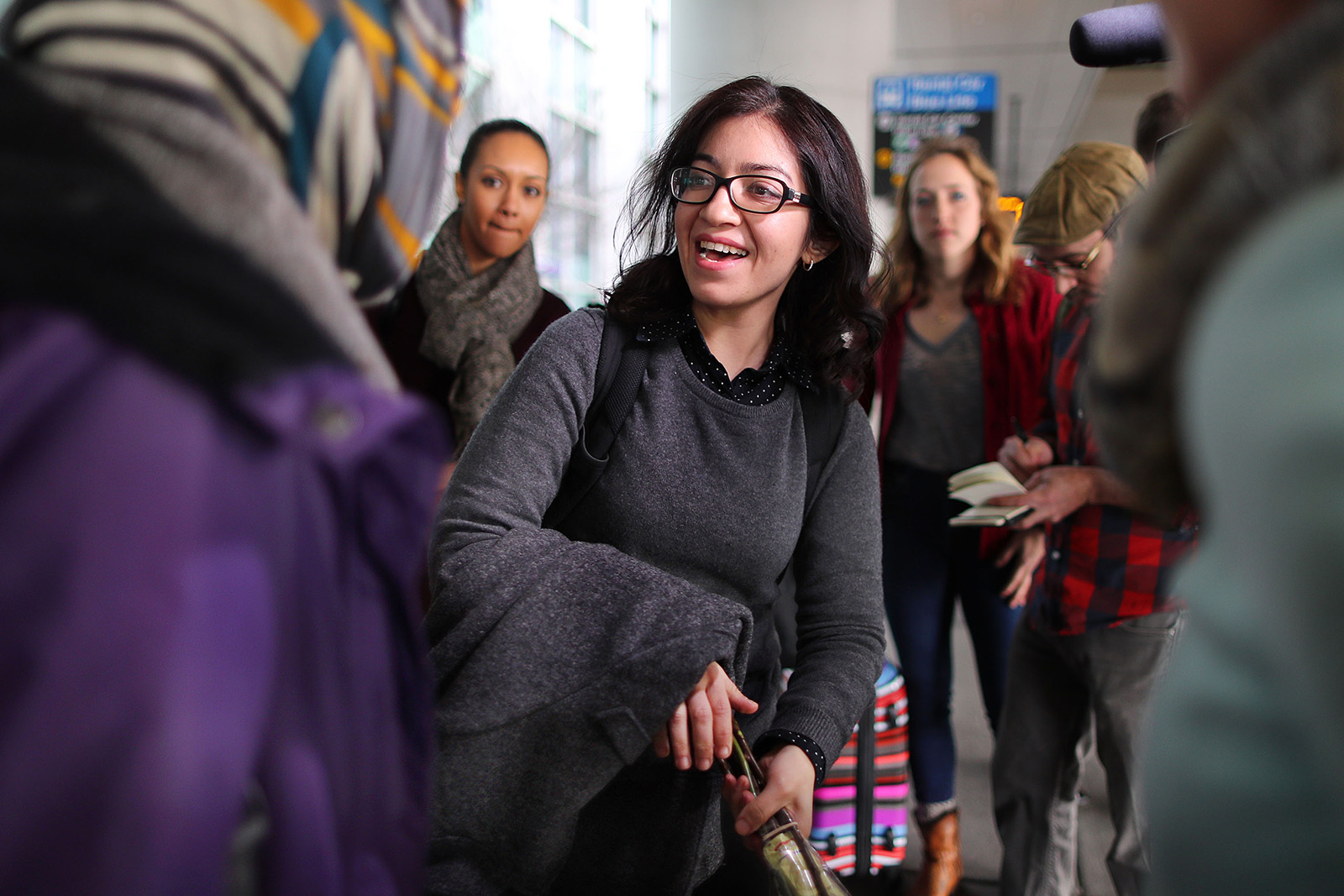
All along, there were experts in Trump’s administration who believed that the order rested on shaky legal ground. But it wasn’t merely judicial and constitutional arguments that made it possible for the restrictions to be established.
“I feel confident that anti-Muslim bias is part of what enabled the supreme court to feel it could get away with claiming that the Muslim ban was a rational policy response to an allegedly real problem,” said Erica Newland, who served as an attorney adviser at the Department of Justice during Trump’s term.
Newland worked in the Office of Legal Counsel, which was charged with ensuring the administration could overcome challenges against the ban that were brought by different courts.
“Everything I saw at the DoJ also led me to believe that if DoJ lawyers had refused to defend any of the Muslim bans in court, Trump would have backed down,” she told Hyphen.
Today, the lengths to which Trump is prepared to go to convince Americans that he can protect them from the allegedly looming threat of Muslim immigration seem limitless. And he is surrounded by advisers with a deep-seated animus toward people of colour and minorities. Their views are not likely to change.
If he is re-elected next week, it is reasonable to expect that he will make good on his campaign-season pledges. So, why hasn’t his brandishing of another immigration moratorium been challenged by the media? Why didn’t it come up in the presidential debates?
Lawrence Pintak, a journalism professor at Washington State University who studies Islamophobia in the media, believes that Trump has created alliances that have helped him withstand legal scrutiny and media criticism.
“I can’t speak to how ABC selected questions for the debate but, as far as I recall, Trump’s interviewers have all been sympathetic, so it is not surprising he has not been challenged in those interviews on the travel ban or his other offensive anti-immigrant plans,” Pintak said.
Islamophobia, scholars point out, isn’t limited to the Republican party or to rightwing media.
Emran El-Badawi, a research professor of Middle Eastern studies at the University of Houston, pointed to casual Islamophobia in the writing of prominent media figures, including as the New York Times journalist Thomas Friedman.
“Hatred against Muslims is not merely the prerogative of the political right, but the political left as well,” El-Badawi added.
Other experts suggest that scaremongering about Muslims is a response to a cultural need for an external villain to be blamed for the challenges facing the nation.
“Arabs and Muslims more generally have been demonised in American culture since 9/11 and the war on terror,” said Joshua Landis, director of the Center for Middle East Studies at the University of Oklahoma. “In many ways, Arabs have become the new enemy, and in films they have replaced the Nazis or Soviet Russians as the bad guys.”
Under Joe Biden, awareness of racial disparities in the US grew demonstrably, especially after the killing of George Floyd and the subsequent rise of the Black Lives Matter movement. In November 2023, following a post-7 October spike in Islamophobic speech and hate crimes, the government announced a National Strategy to Counter Islamophobia and Hatred Against Arabs.
But what results has that strategy produced? Muslim and pro-Palestinian voices in major media and academic institutions have been shut down in public discourse. Incidents of hate crimes against Muslims have soared. And the prospect of a restored travel ban continues to be met with relative silence — both from the media and the Democratic party. Harris’s reticence to tackle discrimination head-on, combined with her unconditional support for Israel as it continues to bombard Gaza, has left many Muslim voters feeling unable to support her.
Should Trump win the presidency and reinstate the ban, it will only serve to further entrench Islamophobic attitudes in American life. The consequences of that — for Muslims here and abroad — will be grave.
 Newsletter
Newsletter


